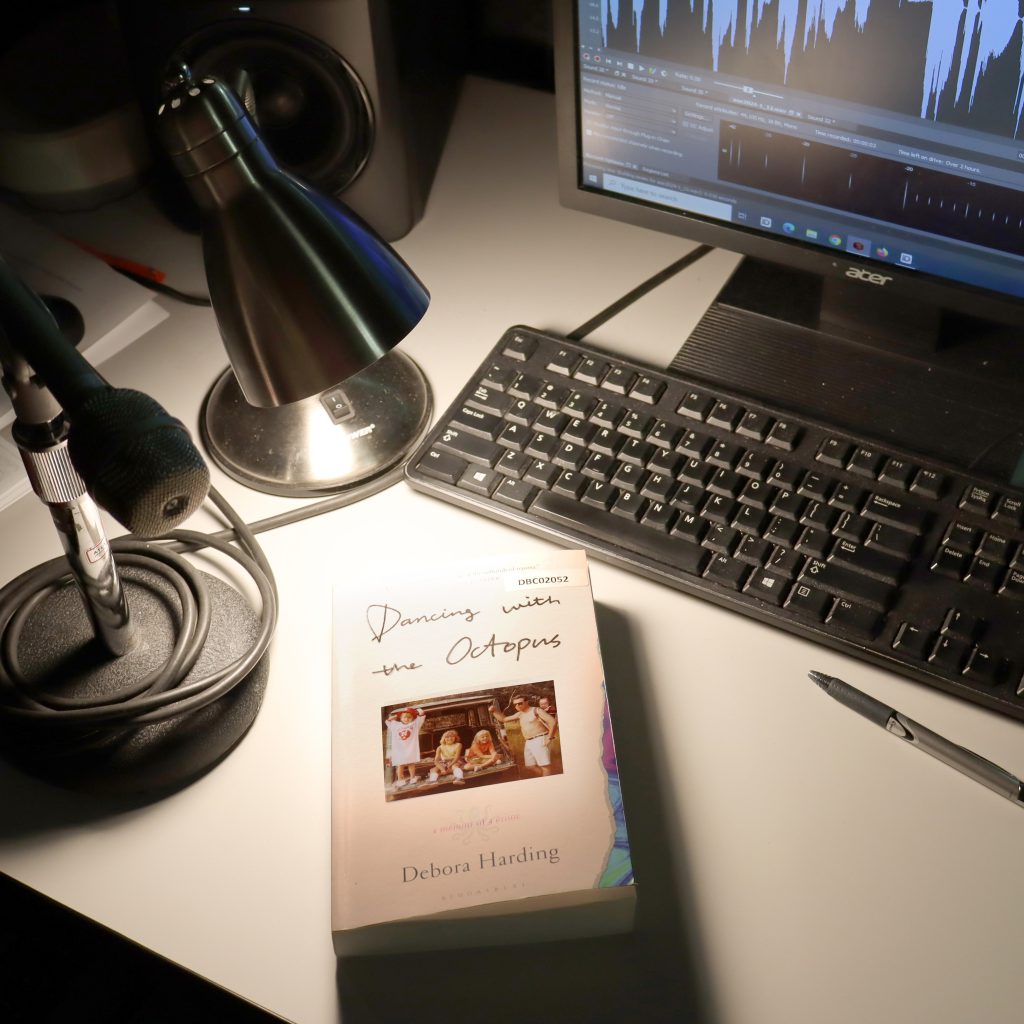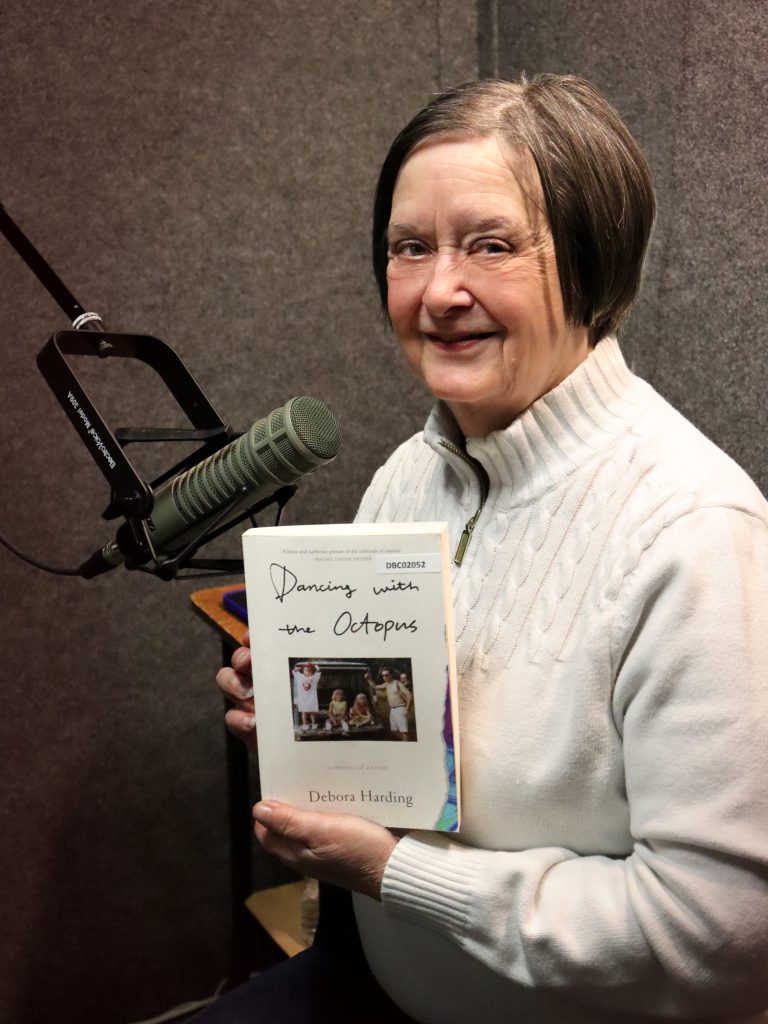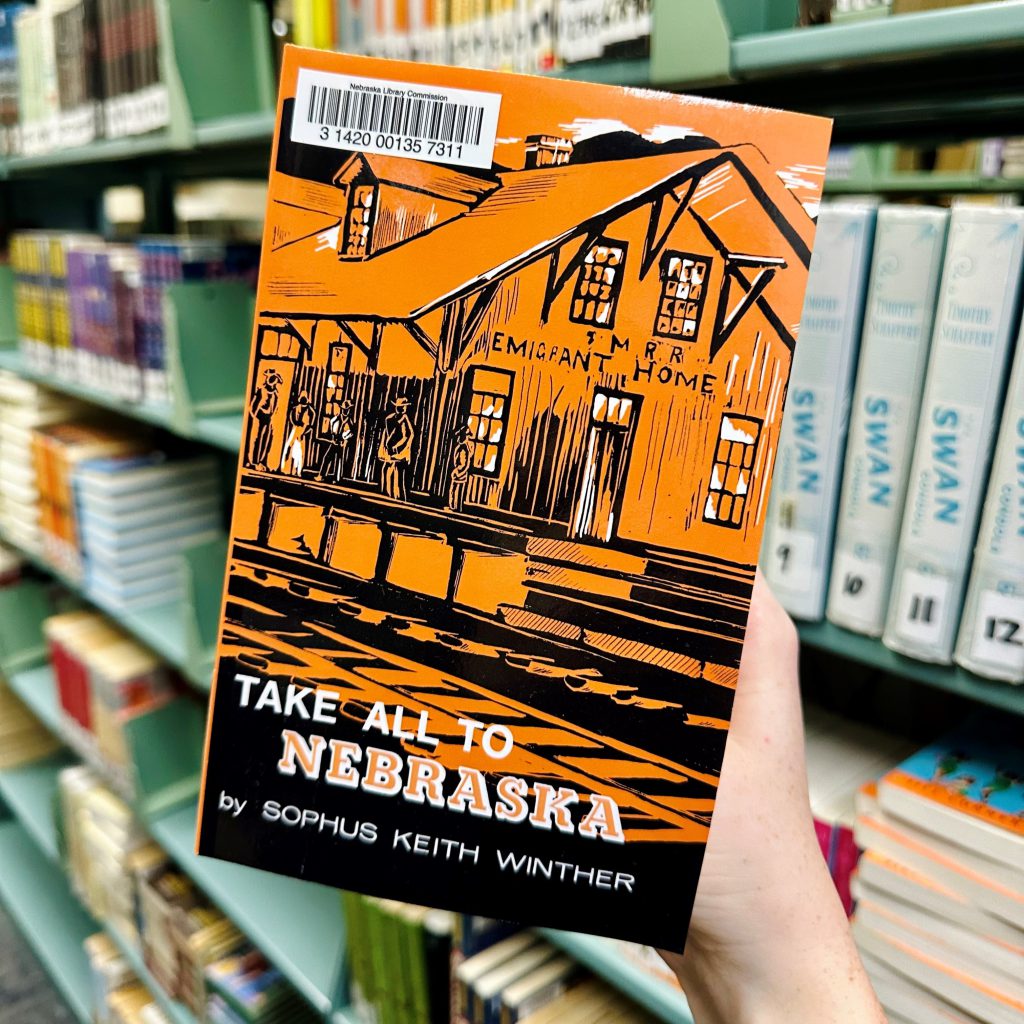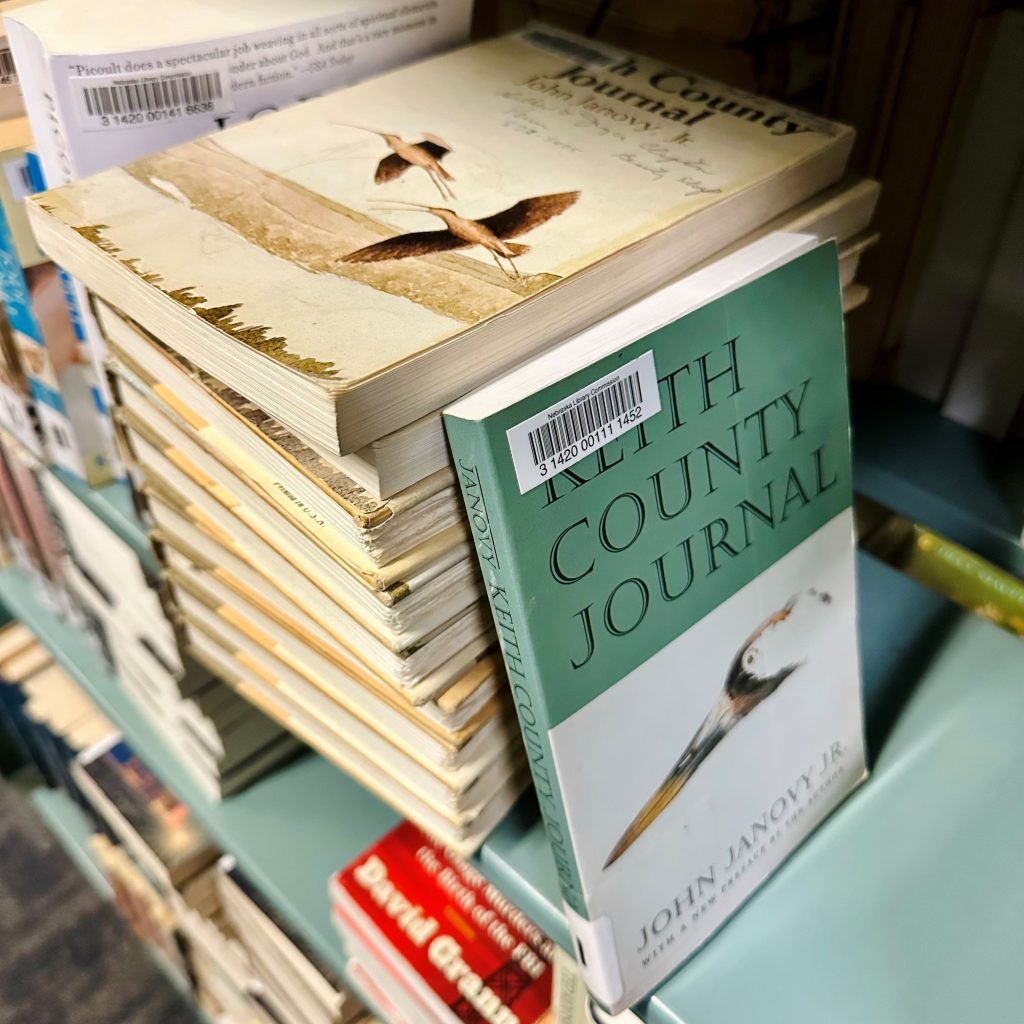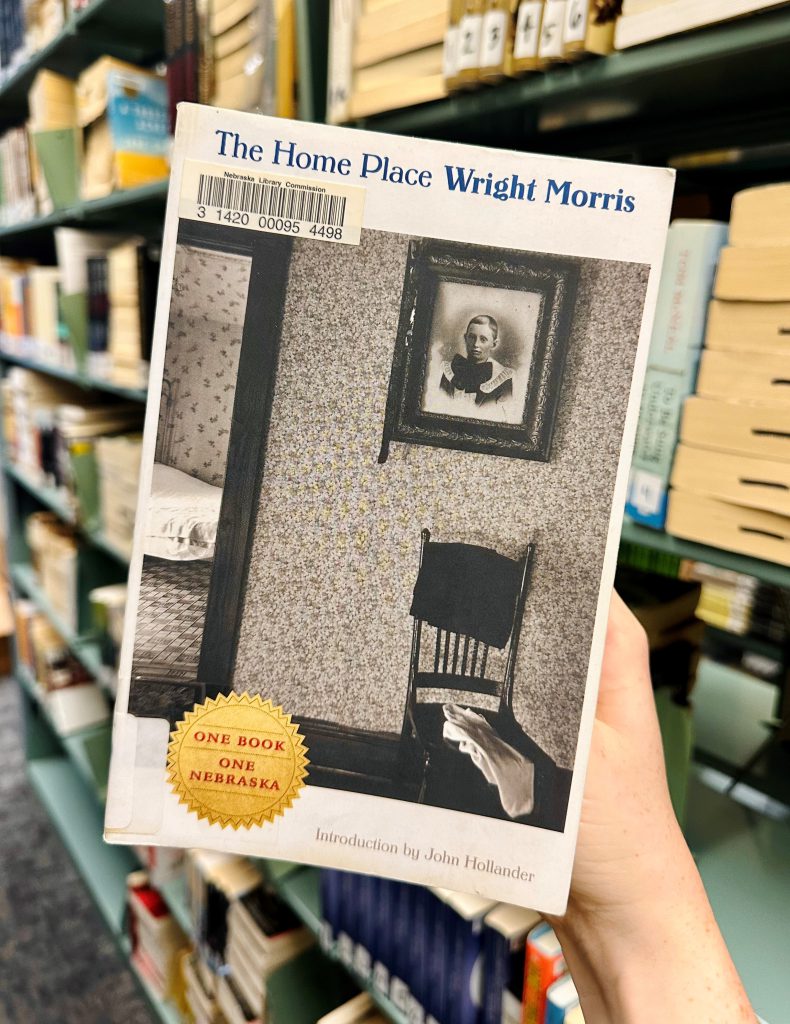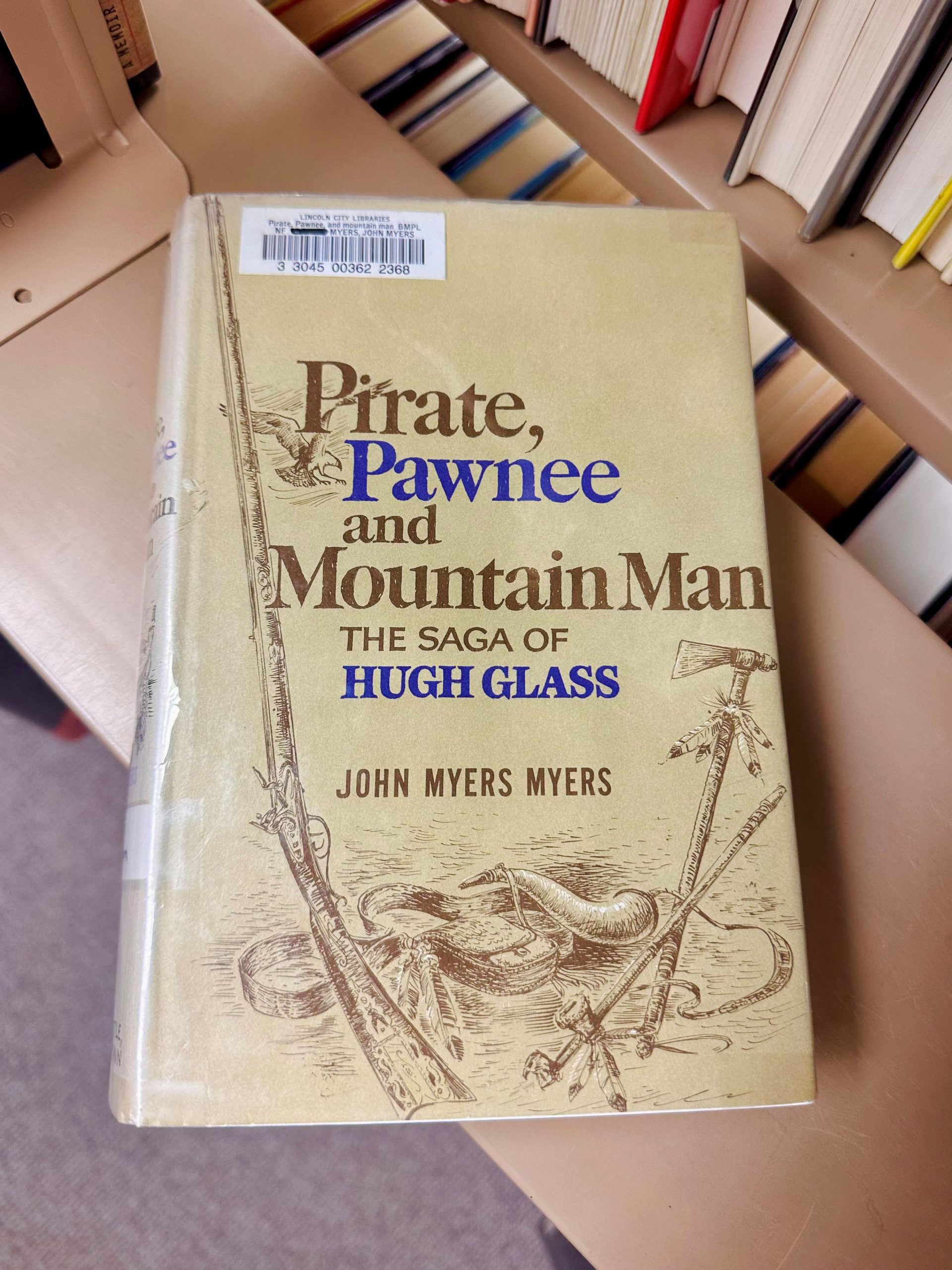Search the Blog
Categories
- Books & Reading
- Broadband Buzz
- Census
- Education & Training
- General
- Grants
- Information Resources
- Library Management
- Nebraska Center for the Book
- Nebraska Memories
- Now hiring @ your library
- Preservation
- Pretty Sweet Tech
- Programming
- Public Library Boards of Trustees
- Public Relations
- Talking Book & Braille Service (TBBS)
- Technology
- Uncategorized
- What's Up Doc / Govdocs
- Youth Services
Archives
Subscribe
Tag Archives: Books on BARD
Nebraska Book Now Available on BARD!
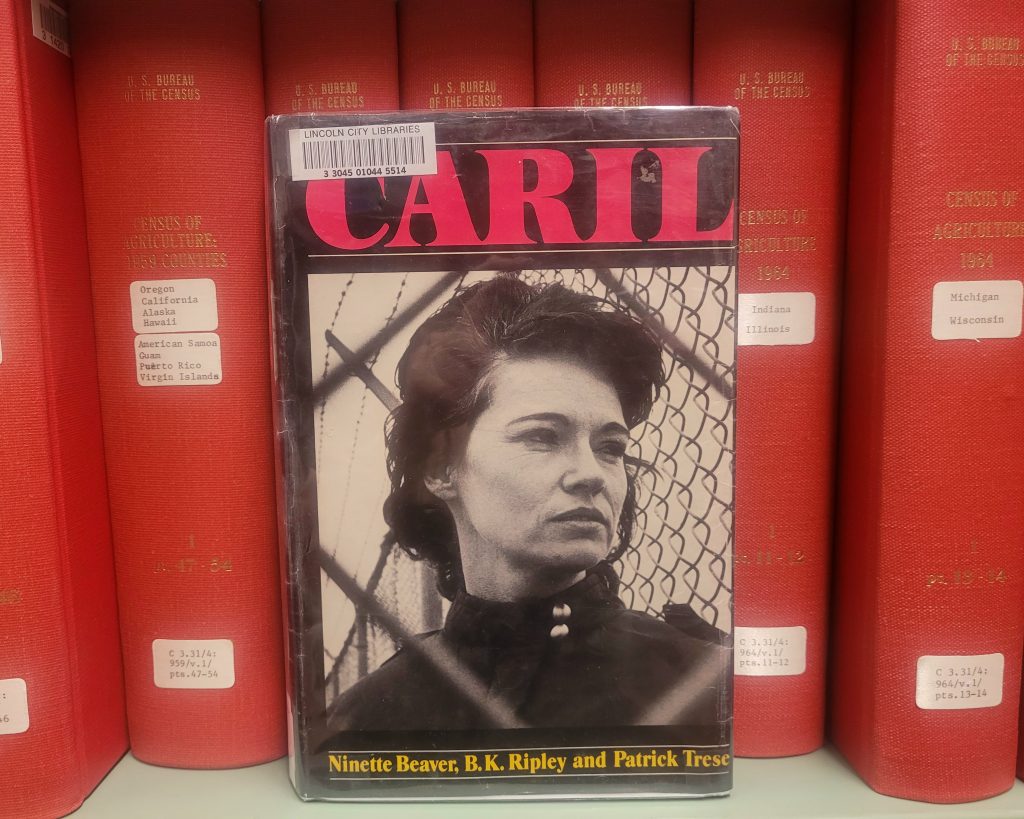
“Caril” by Ninette Beaver, B. K. Ripley, and Patrick Trese is now available on cartridge and for download on BARD, the Braille and Audio Reading Download service. BARD is a service offered by the Nebraska Library Commission Talking Book and Braille Service and the National Library Service for the Blind and Print Disabled at the Library of Congress.
In 1958, fourteen-year-old Caril Ann Fugate followed Charles Starkweather on a cold-blooded murder spree. This is the story of Caril’s triumph over desperation and tragedy — of a young woman who found faith and hope behind prison walls.
TBBS borrowers can request “Caril” DCB02043 or download it from the National Library Service BARD (Braille and Audio Reading Download) website. If you have high-speed internet access, you can download books to your smartphone or tablet, or onto a flash drive for use with your player. You may also contact your reader’s advisor to have the book mailed to you on cartridge.
Historical Nebraska Book Now Available on BARD!
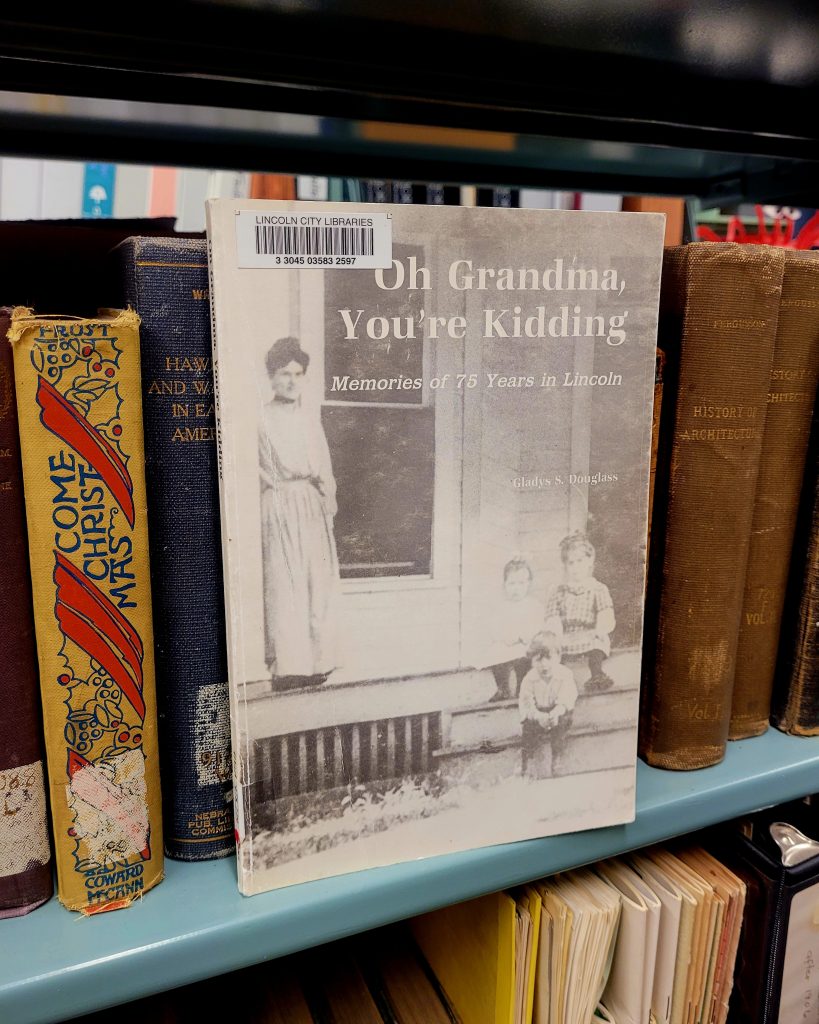
“Oh Grandma, You’re Kidding: Memories of 75 Years in Lincoln” by Gladys S. Douglass, is now available on cartridge and for download on BARD, the Braille and Audio Reading Download service. BARD is a service offered by the Nebraska Library Commission Talking Book and Braille Service and the National Library Service for the Blind and Print Disabled at the Library of Congress.
The author tells of her own early experiences in Lincoln, shortly after the turn of the century. The book previously appeared in the form of short articles which were published in Lincoln’s SUNDAY JOURNAL AND STAR.
“In these pages the reader will find the flow of family and tradition, the story of the common man and woman in Nebraska during the early years of the century. Mari Sandoz knew this secret: the story of the Kinkaid lands lay not with Moses Kinkaid – the “important” man of the law – but rather with the “unimportant” people who were the Kinkaiders – like her father Old Jules. Here we see the fabric of Nebraska life 75 years ago.”
—Roger L. Welsch
TBBS borrowers can request “Oh Grandma, You’re Kidding” DCB02041 or download it from the National Library Service BARD (Braille and Audio Reading Download) website. If you have high-speed internet access, you can download books to your smartphone or tablet, or onto a flash drive for use with your player. You may also contact your reader’s advisor to have the book mailed to you on cartridge.
Nebraska Book Now Available on BARD!

The “Catfish at the Pump” by Roger L. Welsch, with Linda K. Welsch, is now available on cartridge and for download on BARD, the Braille and Audio Reading Download service. BARD is a service offered by the Nebraska Library Commission Talking Book and Braille Service and the National Library Service for the Blind and Print Disabled at the Library of Congress.
Were our forefathers liars? “You bet they were,” says Roger Welsch, “and damned fine ones at that.” The proof is in “Catfish at the Pump”, a collection of the kind of humor that softened the hardships of pioneering on the Great Plains. From yellowed newspapers, magazines, and forgotten Nebraska Federal Writers’ Project files, the well-known folklorist and humorist Roger Welsch has produced a book to be treasured. Here are jokes, anecdotes, legends, tall tales, and lugubriously funny poems about the things that preoccupied the pioneer plainsman: weather extremes; soil quality; food and whiskey; an arkload of animals, including grasshoppers, bed bugs, hoop snakes, the ubiquitous mule, and some mighty big fish; and even sickness and the poverty that would inspire black laughter again in the Great Depression.
“The book is more than a collection of good tales and jokes; it is, in fact, a serious study about humor. . . . well documented and well written.”
—Nebraska History
TBBS borrowers can request the “Catfish at the Pump,” DCB02038 or download it from the National Library Service BARD (Braille and Audio Reading Download) website. If you have high-speed internet access, you can download books to your smartphone or tablet, or onto a flash drive for use with your player. You may also contact your reader’s advisor to have the book mailed to you on cartridge.
New Book Now Available on BARD!
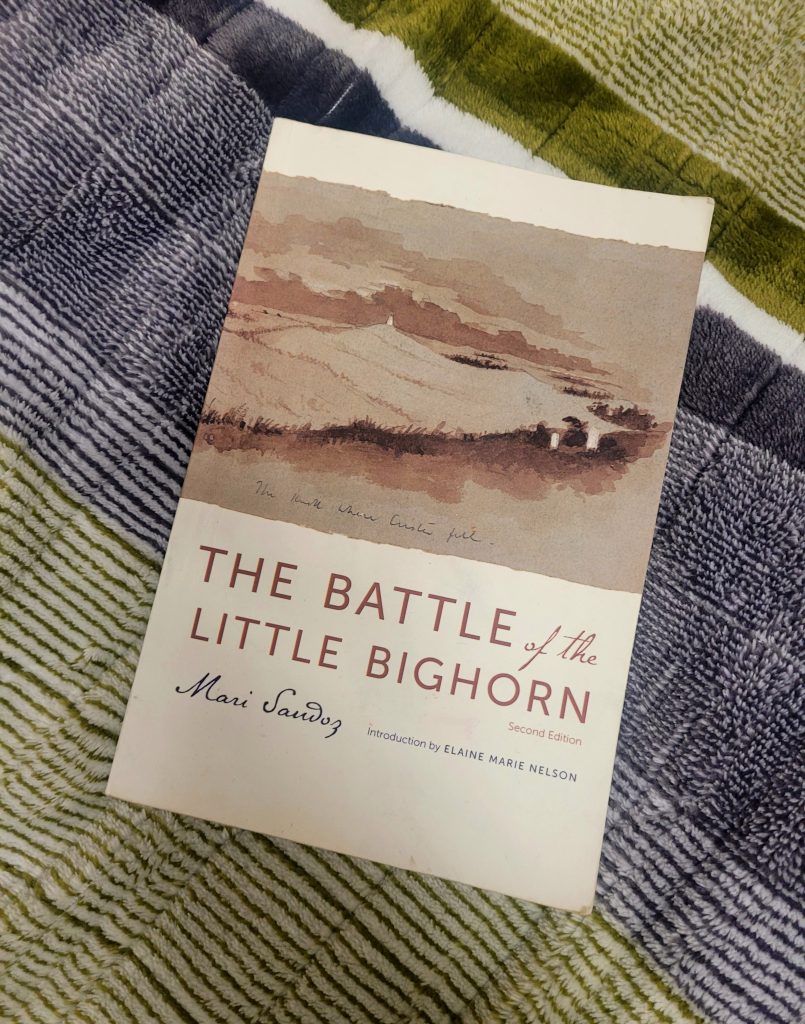
The “The Battle of the Little Bighorn” by Mari Sandoz, introduction by Elaine Marie Nelson, is now available on cartridge and for download on BARD, the Braille and Audio Reading Download service. BARD is a service offered by the Nebraska Library Commission Talking Book and Braille Service and the National Library Service for the Blind and Print Disabled at the Library of Congress.
Mari Sandoz’s beautifully written account of the battle in which General George Armstrong Custer staked his life and lost it reveals on every page the author’s intimate knowledge of her subject. The character of the Sioux, the personality of Custer, the mixed emotions of Custer’s men, the plains landscape all emerge with such clarity that the reader is transported to that spring in 1876 when the Army of the Plains began its fateful march toward Yellowstone. The background of the tragedy is here: the history of bad blood and broken treaties between the Indigenous nations and the United States, the underlying reason for Custer’s expedition and for the convocation of Indians on the Little Bighorn that particular year. Sandoz’s final book was the first analysis of Custer’s motives and political ambitions to shed light on an old mystery that was hotly disputed by the general’s admirers. Historian Elaine Marie Nelson introduces this iconic work to a new generation and details the long, challenging road this book took to publication. Sandoz raced against time to complete the volume while undergoing cancer treatments, and the book was published just three months after her death. “The Battle of the Little Bighorn” is widely considered the apex of her writing.
“Mari Sandoz’s beautifully written account of the battle in which General George Armstrong Custer staked his life in 1876-and lost it-reveals on every page the author’s intimate knowledge of her subject. Historian Elaine Marie Nelson introduces this iconic work to a new generation.”
—Bison Books
TBBS borrowers can request the “The Battle of the Little Bighorn,” DCB02003 or download it from the National Library Service BARD (Braille and Audio Reading Download) website. If you have high-speed internet access, you can download books to your smartphone or tablet, or onto a flash drive for use with your player. You may also contact your reader’s advisor to have the book mailed to you on cartridge.
Nebraska Cookbook Available on BARD!
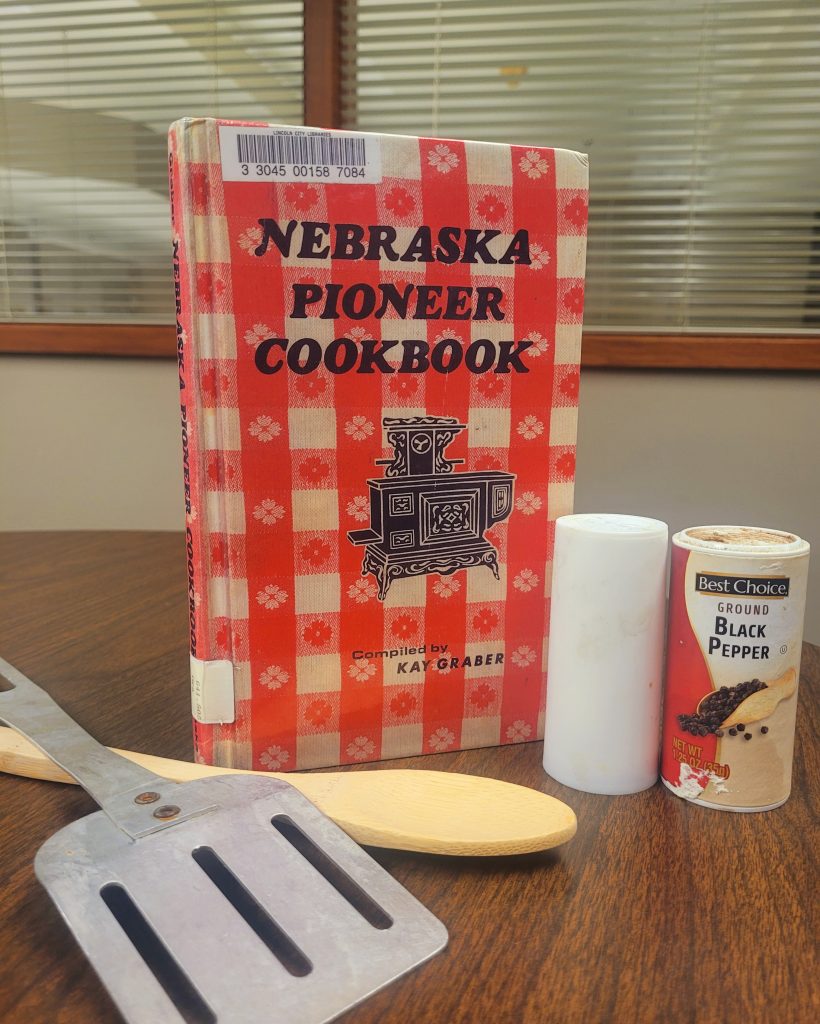
The “Nebraska Pioneer Cookbook” by Kay Graber is now available on cartridge and for download on BARD, the Braille and Audio Reading Download service. BARD is a service offered by the Nebraska Library Commission Talking Book and Braille Service and the National Library Service for the Blind and Print Disabled at the Library of Congress.
Nebraska’s pioneer food tells us much about how our forebearers lived, and in compiling this cookbook the aim was to achieve a balance between recipes and descriptions of the way of life the pioneers exemplified. Interspersed with the recipes are descriptions of food preparation and fare which tell us much about how our forebears lived—industriously, ingeniously, and sometimes very well. Although many of the recipes could not be duplicated in today’s kitchens, there is plenty here to challenge and stimulate amateur and professional chefs—and plenty of food for thought for social historians. Published by University of Nebraska Press.
TBBS borrowers can request the “Nebraska Pioneer Cookbook,” DCB02022 or download it from the National Library Service BARD (Braille and Audio Reading Download) website. If you have high-speed internet access, you can download books to your smartphone or tablet, or onto a flash drive for use with your player. You may also contact your reader’s advisor to have the book mailed to you on cartridge.
A Fantastical Book on BARD!
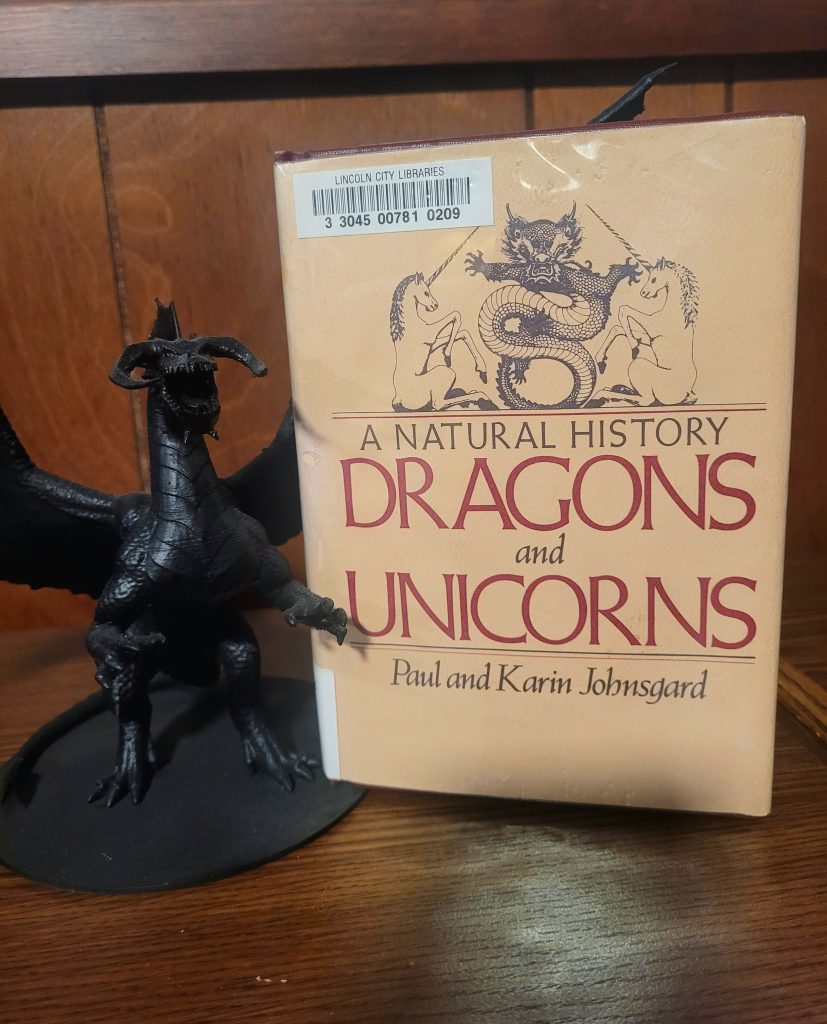
“Dragons and Unicorns: A Natural History” by Paul and Karin Johnsgard is now available on cartridge and for download on BARD, the Braille and Audio Reading Download service. BARD is a service offered by the Nebraska Library Commission Talking Book and Braille Service and the National Library Service for the Blind and Print Disabled at the Library of Congress.
Is it generally safe to walk by dragon weyrs on sunny days? Do dragons really lay golden eggs? Do dragon teeth have any medicinal value? And what about unicorns: Do some rare ones have two horns, and when aren’t unicorns white? What is a unicorn “sneeze call,” and what exactly is the best way to capture a unicorn, anyway? Find the answers to these and other questions in this charming and carefully researched book that presents the first scientific look at two of the earth’s most mysterious and elusive creatures.
TBBS borrowers can request “Dragons and Unicorns: A Natural History,” DBC02037 or download it from the National Library Service BARD (Braille and Audio Reading Download) website. If you have high-speed internet access, you can download books to your smartphone or tablet, or onto a flash drive for use with your player. You may also contact your reader’s advisor to have the book mailed to you on cartridge.
New Book on BARD!
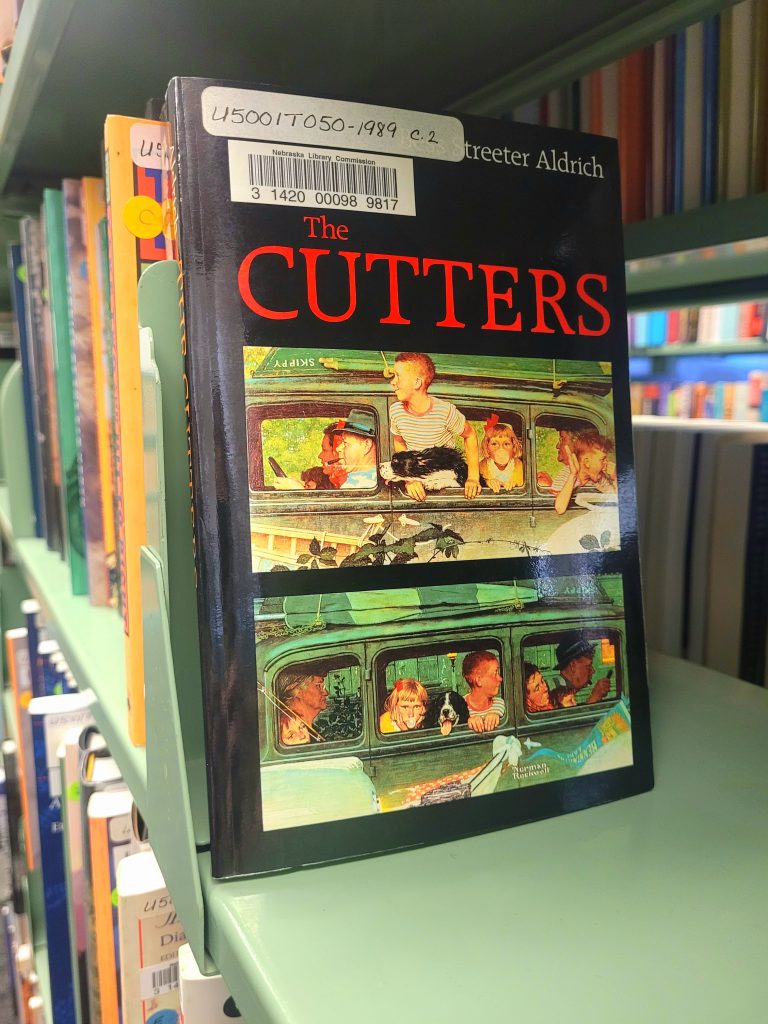
“The Cutters” by Bess Streeter Aldrich is now available on cartridge and for download on BARD, the Braille and Audio Reading Download service. BARD is a service offered by the Nebraska Library Commission Talking Book and Braille Service and the National Library Service for the Blind and Print Disabled at the Library of Congress.
All Unhappy families are alike, to invert Tolstoy, but each happy family is happy in its own way. Take the Cutters. Although they live in a rambling white house in a midwestern town called Meadows, the Cutters are too irreducibly real to stand in for the average all-American family created by pollsters, popular magazines, and television sitcoms. Witty Nell Cutter is not a Good Housekeeping model with lacquered hair. Big Ed Cutter is a lawyer not destined for Easy Street. There are three sons and a daughter-not the right number of children. Gramma, who lives with them, is inimitably Gramma. They compete for the reader’s attention, pursuing happiness in human ways that have not changed since 1926, when The Cutters was first published. But it is Nell Cutter who best illustrates Bess Streeter Aldrich’s strength in drawing memorable characters. Whether she is decorating the house on a budget for wealthy guests or testing child-raising theories or trying to make the daily loaf a little more yeasty. Nell Cutter is not afraid to experiment. She may go out on a limb, but it is seldom a dead one.
“The Cutters is well conceived and written. It is piched in a light, pleasant key and…comes as a welcome relief from adventure yarns and tales of mooncalf love. “
— Literary Review
TBBS borrowers can request “The Cutters,” DCB02017 or download it from the National Library Service BARD (Braille and Audio Reading Download) website. If you have high-speed internet access, you can download books to your smartphone or tablet, or onto a flash drive for use with your player. You may also contact your reader’s advisor to have the book mailed to you on cartridge.
Posted in Books & Reading, General, Talking Book & Braille Service (TBBS)
|
Tagged BARD, Bess Streeter Aldrich, Books on BARD, Nebraska Author, Talking Books, TBBS, The Cutters
|
Leave a comment
New Nebraska Book on BARD!
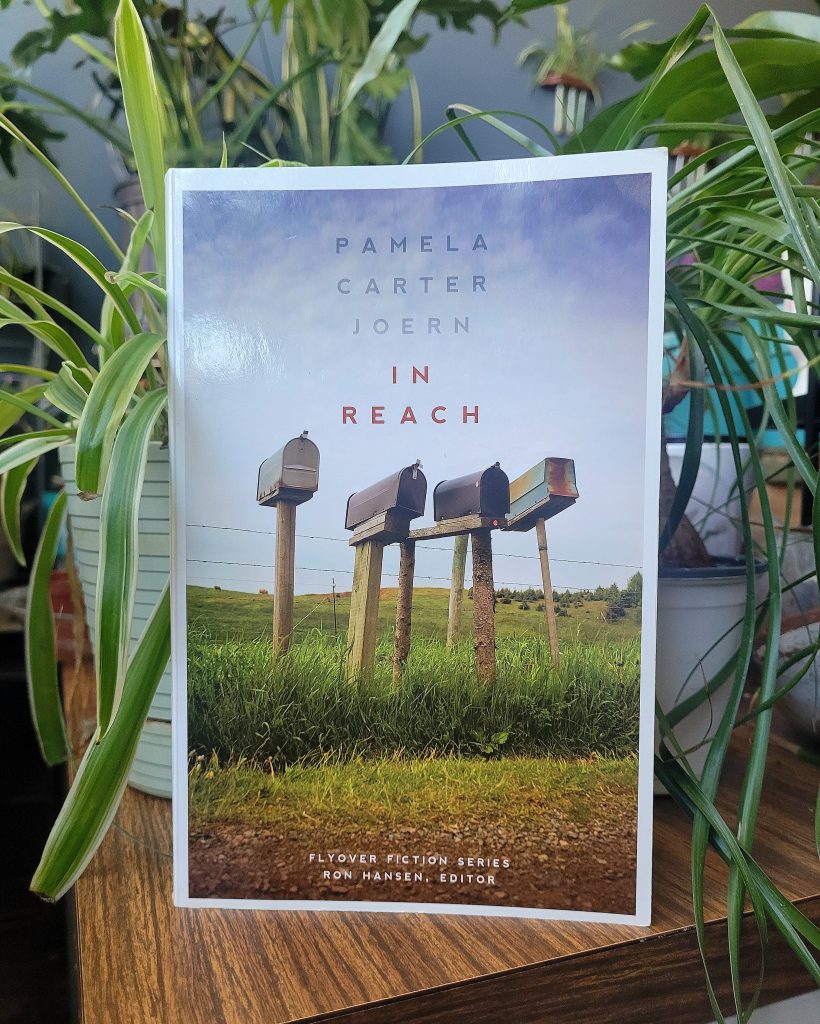
“In Reach” by Pamela Carter Joern is now available on cartridge and for download on BARD, the Braille and Audio Reading Download service. BARD is a service offered by the Nebraska Library Commission Talking Book and Braille Service and the National Library Service for the Blind and Print Disabled at the Library of Congress.
“In Reach” was chosen as one of the 150 notable Nebraska books to highlight for the Nebraska 150 Celebration. These books represent the best literature produced from Nebraska during the past 150 years and highlight the varied cultures, diverse experiences and the shared history of Nebraskans.
In writing both rich and evocative, Pamela Carter Joern conjures the small plains town of Reach, Nebraska, where residents are stuck tight in the tension between loneliness and the risks of relationships. With insight, wry humor, and deep compassion, Joern renders a cast of recurring characters engaged in battles public and private, epic and mundane: a husband and wife find themselves the center of a local scandal; a widow yearns for companionship, but on her own terms; a father and son struggle with their broken relationship; a man longs for escape from a community’s limited view of love; a boy’s misguided attempt to protect his brother results in a senseless tragedy. In the town of Reach, where there is hope and hardship, connections may happen in surprising ways or lie achingly beyond grasp.
“Pamela Carter Joern’s fictional village of Reach, Nebraska, is populated by people you have known, or known of, all your life. In these glimpses of life as it is really lived, you will encounter your aunt Ella, your grandfather Leland, even the uncle no one mentions. You may agree that God is not absent if you are there. You will never forget Marlene and Vernon. Each character is doing “the best he can do” to harvest satisfaction from their lives. Searching for connections, you will find these folks in reach of your heart.”
—Linda M. Hasselstrom, author of “No Place Like Home” and “Dirt Song”
TBBS borrowers can request “In Reach,” DBC01891 or download it from the National Library Service BARD (Braille and Audio Reading Download) website. If you have high-speed internet access, you can download books to your smartphone or tablet, or onto a flash drive for use with your player. You may also contact your reader’s advisor to have the book mailed to you on cartridge.
Posted in Books & Reading, General, Talking Book & Braille Service (TBBS)
|
Tagged BARD, Books on BARD, In Reach, Nebraska Author, Pamela Carter Joern, Talking Books, TBBS
|
Leave a comment
New Book Now on BARD!
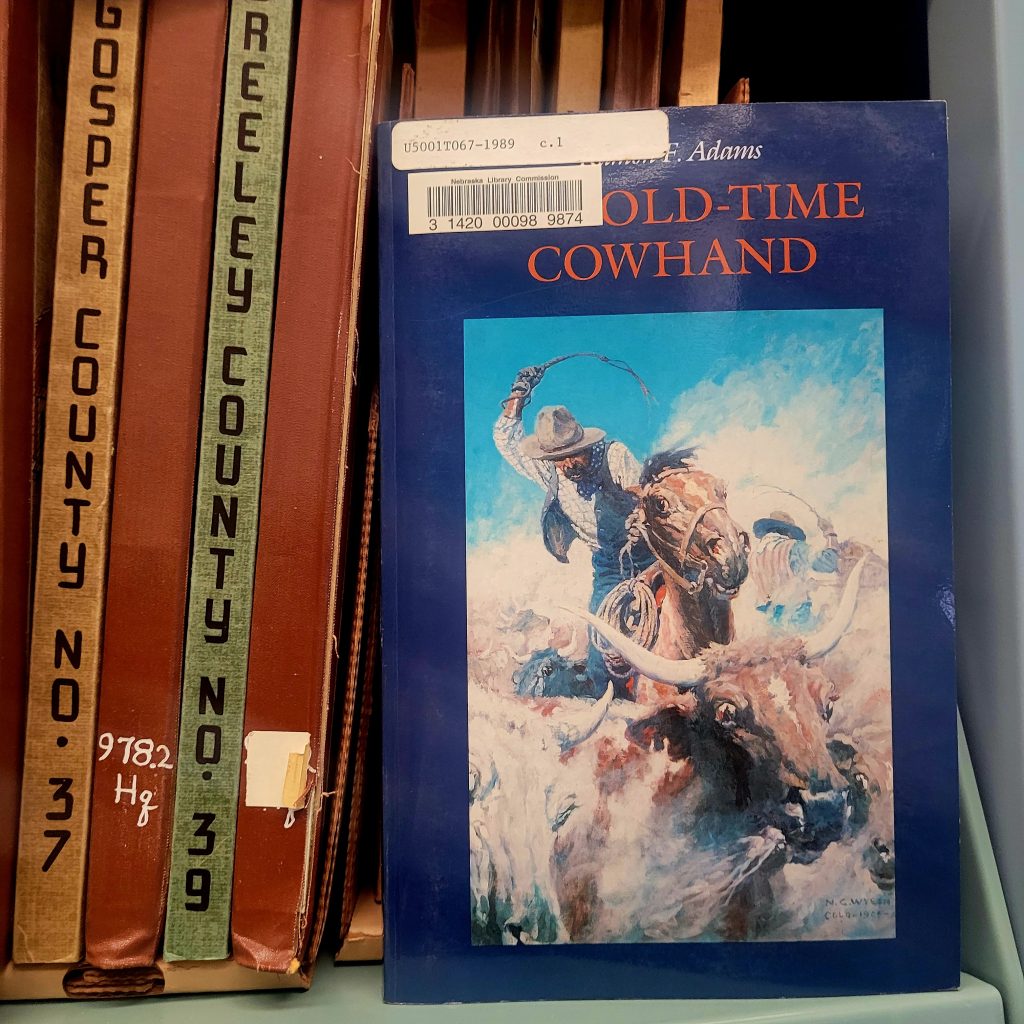
“The Old-Time Cowhand” by Ramon F. Adams is now available on cartridge and for download on BARD, the Braille and Audio Reading Download service. BARD is a service offered by the Nebraska Library Commission Talking Book and Braille Service and the National Library Service for the Blind and Print Disabled at the Library of Congress.
The American cowboy emerges from these pages as a recognizable human being with little resemblance to the picturesque inventions of the horse opera. Ramon F. Adams, a highly respected authority on the Old West, talks straight about what the cowhand really did and thought. His cow-punching, broncobusting, trail driving; his rodeo riding, poker playing, socializing; his horse, guns, ripe, clothing, sleeping bag; his eating and drinking habits; his attitude toward God, women, bosses; his unwritten code of conduct–everything about this vanished breed is told with absorbing authenticity, in the rich and varied lingo of the range.
“Encyclopedic in its coverage of the subject.”—Library Journal
TBBS borrowers can request “The Old-Time Cowhand,” DBC02042 or download it from the National Library Service BARD (Braille and Audio Reading Download) website. If you have high-speed internet access, you can download books to your smartphone or tablet, or onto a flash drive for use with your player. You may also contact your reader’s advisor to have the book mailed to you on cartridge.
Posted in Books & Reading, General, Talking Book & Braille Service (TBBS)
|
Tagged BARD, Books on BARD, Raymond F Adams, Talking Books, TBBS, The Old-Time Cowhand
|
Leave a comment
“Abandoned Prayers” Now Available on BARD!
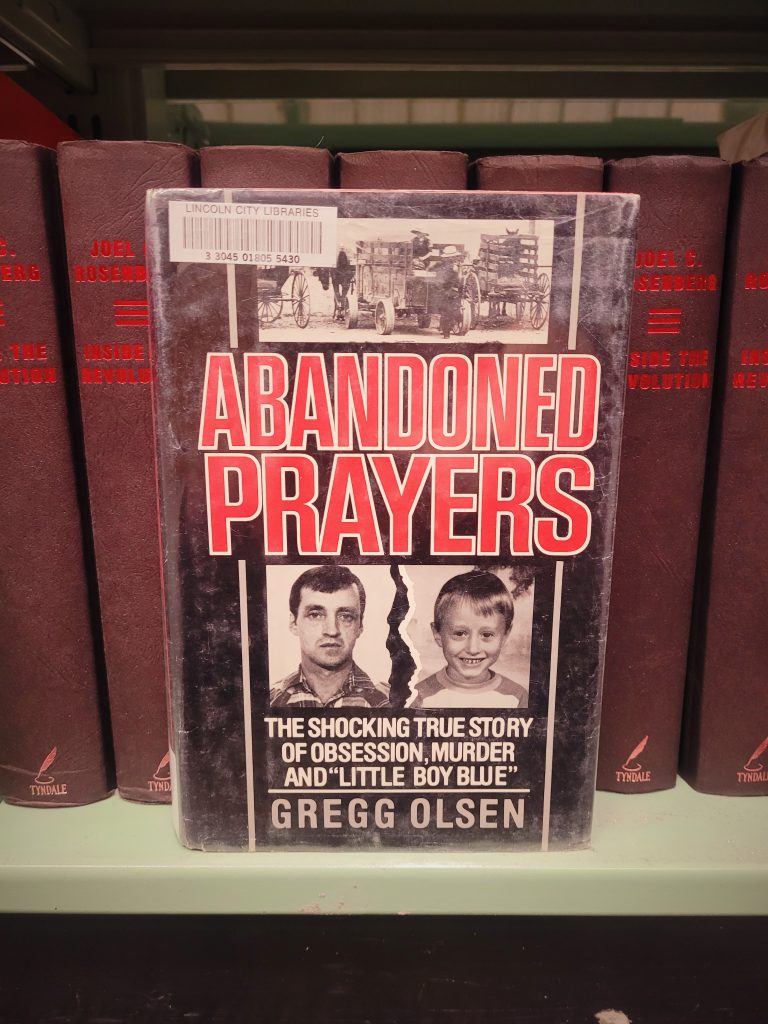
“Abandoned Prayers” by Gregg Olson is now available on cartridge and for download on BARD, the Braille and Audio Reading Download service. BARD is a service offered by the Nebraska Library Commission Talking Book and Braille Service and the National Library Service for the Blind and Print Disabled at the Library of Congress.
Eli Stutzman was born and raised in one of Ohio’s strictest Amish communities. But behind the peaceful facade was a quietly tormented rebel. After the suspicious death of his pregnant wife, Stutzman abruptly severed his ties with the Amish. Taking his young son Danny with him, he embarked on a cross-country spree of compulsive pickups, rampant drug abuse and violence.
TBBS borrowers can request “Abandoned Prayers,” DBC01998, or download it from the National Library Service BARD (Braille and Audio Reading Download) website. If you have high-speed internet access, you can download books to your smartphone or tablet, or onto a flash drive for use with your player. You may also contact your reader’s advisor to have the book mailed to you on cartridge.
Posted in Books & Reading, General, Talking Book & Braille Service (TBBS)
|
Tagged Abandoned Prayers, BARD, Books on BARD, Gregg Olson, Talking Books, TBBS
|
Leave a comment
New Book Available on BARD!
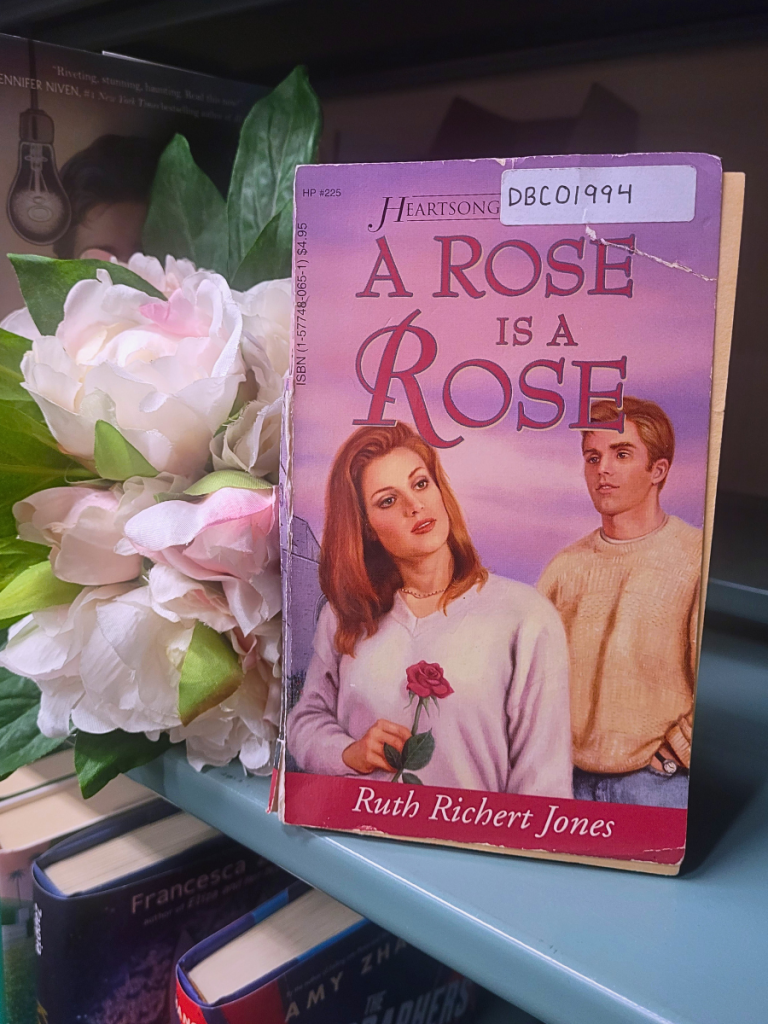
“A Rose is a Rose” by Ruth Richert Jones is now available on cartridge and for download on BARD, the Braille and Audio Reading Download service. BARD is a service offered by the Nebraska Library Commission Talking Book and Braille Service and the National Library Service for the Blind and Print Disabled at the Library of Congress.
Kelley stopped believing in God when she stopped believing in Santa Claus. And she’s managed just fine without Him. She has a good career, a handsome man who wants to marry her, and now an exciting trip to England to fill her life. But suddenly everything falls apart. She meets Ian Stewart in England, and she begins to question her feelings for Charles, the man waiting for her in America. Shadows surround Ian, though, and Kelley is afraid to trust him. As the days go by, she realizes that either Ian or Charles is involved in the theft of a valuable microchip. One of the men who loves her is a thief. What’s more, the authorities suspect that Kelley was also involved in the robbery. Kelly is in danger of losing her career, her good name, maybe even her life. Where can she turn of help, when she doesn’t know whom she can trust? But, Kelley’s great aunt promises Jesus is a Friend one can always trust, for He never fails. What would it be like, Kelley wonders, to have a Friend like that?
TBBS borrowers can request “A Rose is a Rose,” DBC01994, or download it from the National Library Service BARD (Braille and Audio Reading Download) website. If you have high-speed internet access, you can download books to your smartphone or tablet, or onto a flash drive for use with your player. You may also contact your reader’s advisor to have the book mailed to you on cartridge.
Friday Reads & #BookFaceFriday: The Fabric of Civilization by Virginia Postrel
The most profound technologies are those that disappear. They weave themselves into the fabric of everyday life until they are indistinguishable from it.
Mark Weiser
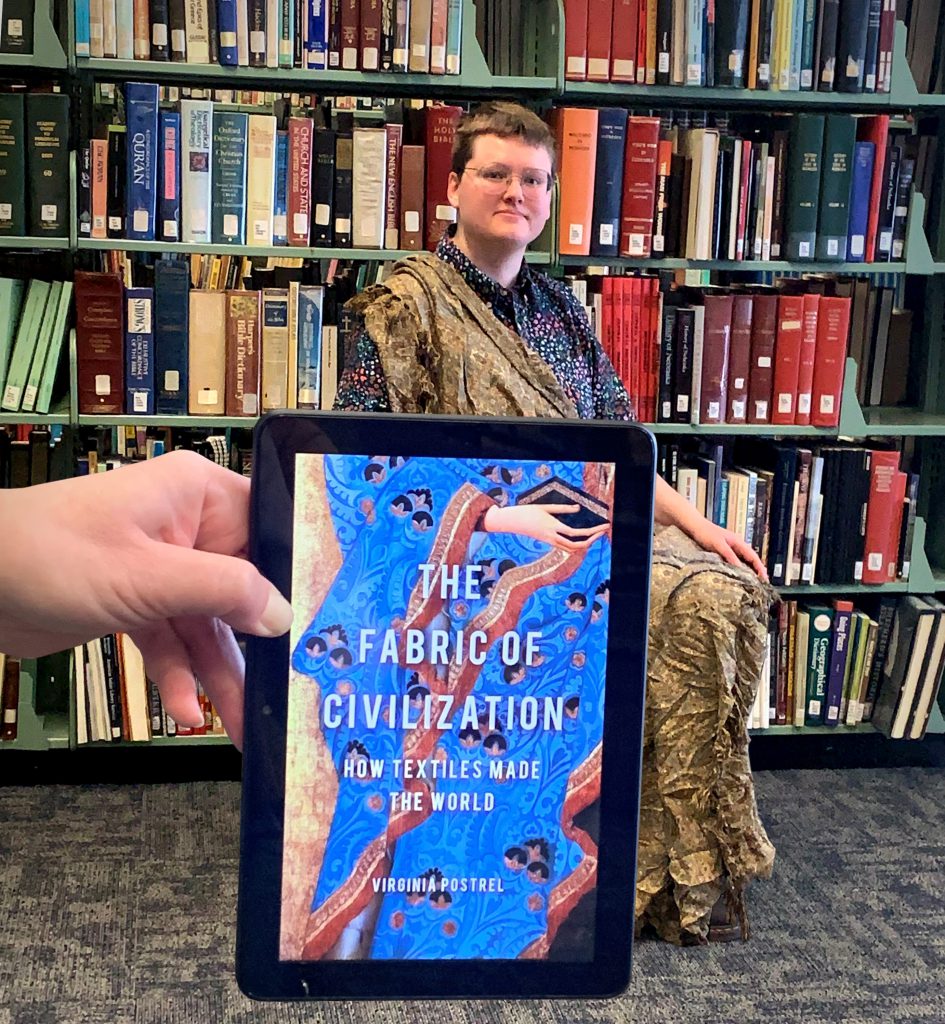
Virginia Postrel’s The Fabric of Civilization begins with the dawn of human history, with the first fibers twisted into string, and ends with modern innovators creating new fibers and types of fabrics. The book is sectioned into seven chapters, each covering a certain step in the fiber-to-textile life cycle: Fiber, Thread, Cloth, Dye, Traders, Consumers, and Innovators. Postrel’s core thesis: fabric was among our first technologies, and it was also our most crucial and defining technology — and it still is. “We hairless apes co-evolved with our cloth,” Postrel writes. “From the moment we’re wrapped in a blanket at birth, we are surrounded by textiles.”
This book was absolutely fascinating. As a knitter, crocheter, and now a beginning spinner, part of my awe for the fiber crafts comes from their long-stretching history: from me, to my grandmother, to endless generations past. The way I spin yarn from wool, sitting on my couch in front of the TV in 2024, uses the same motions that would be familiar to someone in ancient history. Fibers spun into thread were necessary for the cloth needed for sails, clothing, blankets, political functions, military uniforms, and religious/cultural rituals. My burgeoning love of spinning is likely why Chapter 2: Thread was my favorite. Postrel’s breakdown of how long it would take spinners and their spindles from different eras to produce the thread that was so crucial for exploration, competition, commerce, and general livelihood was incredibly thorough. Take a moment to think about all the fabric around you right now. That fabric is composed of woven threads or knitted yarns. Today’s modern factories use heavy machinery to spin fibers into miles and miles of that thread for jeans, cotton shirts, and wool coats. For much of history, however, that process needed to be done entirely by hand. Much of the rest of the world’s economy could not work until the spinners did, and the quest to expedite the process drove inventions and innovations that had far-reaching effects on industries beyond that of textiles.
At times, Postrel’s overview and analysis bottlenecks into myopia, and the occasional – but thankfully brief – insertions of her own personal experiences with the textile process were jarring. Postrel occasionally falls into a columnist’s cadence, sacrificing the distance of academic de rigueur for a more conversational tone. Another reader might appreciate the first-person connections and exposé-esque sections – a la How It’s Made – and I can certainly understand the reasoning behind her choice, but I did not find that these added much to the book.
Her myopia, however, is less forgivable. Postrel would have crafted a more solid body of work had she matched the title with the true scope of her endeavor, and called the book The Fabric of Western Civilization. Industrial Revolution-era Europe and New England are centered far more prominently than I would have preferred. Postrel touches briefly on the interaction between the South’s cotton industry and England’s mills — even after the latter abolished slavery — but doesn’t spend as long on that connection, even though I feel it would have bolstered her argument about global commerce and economy. This was an especially disappointing flaw, especially given Postrel’s own definitions of “civilization,” including the fact that it is a cumulative process not bound to one region or culture; in fact, as Postrel does mention, exchange (willing and unwilling) is what drove the evolution of textiles and humanity both.
Postrel also falls into the trap of rebuttal for the sake of novel arguments, which end up bordering on dismissal of broader historical truths: particularly and most egregiously in her argument about cotton in the Pre-Civil War South, singling out Edward E. Baptist’s The Half Has Never Been Told: Slavery and the Making of American Capitalism (2013) and his statement that increased cotton production was caused by ever-intensifying brutality inflicted on enslaved people. Postrel counters that the production increase can be simply explained, instead, by advancements in both cotton stock and processing technologies. However, there is no reason why both cannot be true. The same root issue is also at play when she disregards the low-wages of the pre-industrial (and typically female) spinners as solely a business decision, devoid of the influence of gender and class politics. History is not a field with single-causes and single-effects.
Part of the appeal of non-fiction to me, however, is actively engaging with the arguments that the author presents. A sense of wonder is important, but I also want to think about the topic and build my own perspective. And so, overall, I enjoyed the book. I listened to the audiobook read by Caroline Cole, but I do plan to check out the print copy from my local library, in order to explore Postrel’s footnotes and bibliography for further reading and learning opportunities.
You can find “The Fabric of Civilization: How Textiles Made the World” by Virginia Postrel is available for download on BARD, the Braille and Audio Reading Download service. BARD is a service offered by the Nebraska Library Commission Talking Book and Braille Service and the National Library Service for the Blind and Print Disabled at the Library of Congress.
Love this #BookFace & reading? We suggest checking out all the titles available in our Book Club collection, permanent collection, and Nebraska OverDrive Libraries. Check out our past #BookFaceFriday photos on the Nebraska Library Commission’s Facebook page!
Postrel, Virginia. The Fabric of Civilization: How Textiles Made the World. Basic Books/OrangeSky Audio, 2021.
2024 One Book One Nebraska: Now Available on BARD!
“Dancing with the Octopus: A Memoir of a Crime” by Debora Harding is now available on cartridge and for download on BARD, the Braille and Audio Reading Download service. BARD is a service offered by the Nebraska Library Commission Talking Book and Braille Service and the National Library Service for the Blind and Print Disabled at the Library of Congress.
This memoir of native Nebraskan, Debora Harding, is all about a traumatic childhood event, the aftereffects of which would change her family forever. Harding expertly weaves the past with the present in a riveting story of survival and family dynamics.
“With remarkable narrative skill, Harding untangles the lingering effects of family dysfunction and criminal trauma. This is a page-turner with a deep heart and soul, full of forgiveness but demanding of accountability.”
BookPage, “Best Books of 2020: Memoirs”
This title has been selected as the 2024 One Book One Nebraska. The program is now in its 20th year of bringing Nebraskans together for the reading and discussion of one great book written by Nebraska authors or that have a Nebraska theme or setting. Nearly every One Book One Nebraska winner is available on cartridge and for download on BARD.
The narration was done by Connie Healey, who has been volunteering for Talking Book and Braille for 10 years and received a Nebraska Library Association Outstanding Volunteer Award in 2022. The recording took over 30 hours in the studio and an additional 20 hours of post-production to prepare for our patrons. Connie has now read three One Book One Nebraska selections, the other two being “The Bones of Paradise” by Jonis Agee and “Prairie Forge” by James J. Kimble.
TBBS borrowers can request “Dancing with the Octopus: A Memoir of a Crime,” DBC02052, or download it from the National Library Service BARD (Braille and Audio Reading Download) website. If you have high-speed internet access, you can download books to your smartphone or tablet, or onto a flash drive for use with your player. You may also contact your reader’s advisor to have the book mailed to you on cartridge.
New Book Available on BARD!
“Take All to Nebraska” by Sophus Keith Winther is now available on cartridge and for download on BARD!
A novel about a Danish family struggling to establish themselves on a rented farm in Nebraska at the turn of the century.
TBBS borrowers can request “Take All to Nebraska”, DBC02009, or download it from the National Library Service BARD (Braille and Audio Reading Download) website. If you have high-speed internet access, you can download books to your smartphone or tablet, or onto a flash drive for use with your player. You may also contact your reader’s advisor to have the book mailed to you on cartridge.
Posted in Books & Reading, General, Talking Book & Braille Service (TBBS)
|
Tagged Adult Fiction, BARD, books, Books on BARD, Fiction, Reading, Sophus Keith Winther, Take All to Nebraska, Talking Books, TBBS
|
Leave a comment
New Nebraska Book on BARD!
“Keith County Journal” by John Janovy is now available on cartridge and for download on BARD!
The natural life of Keith County, in West Central Nebraska, is explored in this unusual and highly praised book. As we walk through the field and marshes, we are shown aspects of the countryside that are usually ignored or even found repulsive, such as termites, snails, the blood-sucking louse, etc.
A very different look at the wonders of nature, fascinating, well written, and enlightening
Library Journal
TBBS borrowers can request “Keith County Journal,” DBC02008, or download it from the National Library Service BARD (Braille and Audio Reading Download) website. If you have high-speed internet access, you can download books to your smartphone or tablet, or onto a flash drive for use with your player. You may also contact your reader’s advisor to have the book mailed to you on cartridge.
Posted in Books & Reading, General, Talking Book & Braille Service (TBBS)
|
Tagged BARD, Books on BARD, John Janovy, Keith County Journal, Talking Book, TBBS
|
Leave a comment
“The Home Place” Now Available on BARD
“The Home Place” by Wright Morris is available on cartridge and for download on BARD!
First published in 1948, this novel, written in the first person, describes the one-day visit of Clyde Muncy to “the home place” at Lone Tree, Nebraska. This tale of a New York family’s visit to a Nebraska farm has been acclaimed for its human interest and humor, stemming from the quiet collision of ways of life going in opposite directions. It was selected as the 2010 One Book One Nebraska and is listed on the 150 Greatest Nebraska Books list — a list that represent the best literature produced from Nebraska during the past 150 years.
A fine piece of Americana.
Library Journal
TBBS borrowers can request “The Home Place,” DBC02005, or download it from the National Library Service BARD (Braille and Audio Reading Download) website. If you have high-speed internet access, you can download books to your smartphone or tablet, or onto a flash drive for use with your player. You may also contact your reader’s advisor to have the book mailed to you on cartridge.
Posted in Books & Reading, General, Talking Book & Braille Service (TBBS)
|
Tagged BARD, Books on BARD, Nebraska 150 Books, Talking Books, TBBS, The Home Place, Wright Morris
|
Leave a comment
New Book Available on BARD!
“The Saga of Hugh Glass: Pirate, Pawnee, and Mountain Man“ by John Myers Myers is now available on cartridge and for download on BARD!
This title relates the adventures of Hugh Glass, who was by turns a pirate, a captive of the Pawnee, and a mountain man who dragged himself 2,000 miles after being left to die in the wilderness.
“There is no story like it in all literature and in all history. . . . The greatest and truest hero of all time was once a buckskin man living on the American frontier. Mr. Myers has done a fine job of scholarly research. He offers many new insights as to the true character of the mountain man. And the bibliography is alone worth the price of admission.”
Frederick Manfred, Chicago News
TBBS borrowers can request “The Saga of Hugh Glass“, DBC01996, or download it from the National Library Service BARD (Braille and Audio Reading Download) website. If you have high-speed internet access, you can download books to your smartphone or tablet, or onto a flash drive for use with your player. You may also contact your reader’s advisor to have the book mailed to you on cartridge.
Posted in Books & Reading, General, Talking Book & Braille Service (TBBS)
|
Tagged BARD, Biography, Books on BARD, John Myers Myers, New, nonfiction, Talking Books, The Saga of Hugh Glass
|
Leave a comment
New Summer Book Available on BARD!
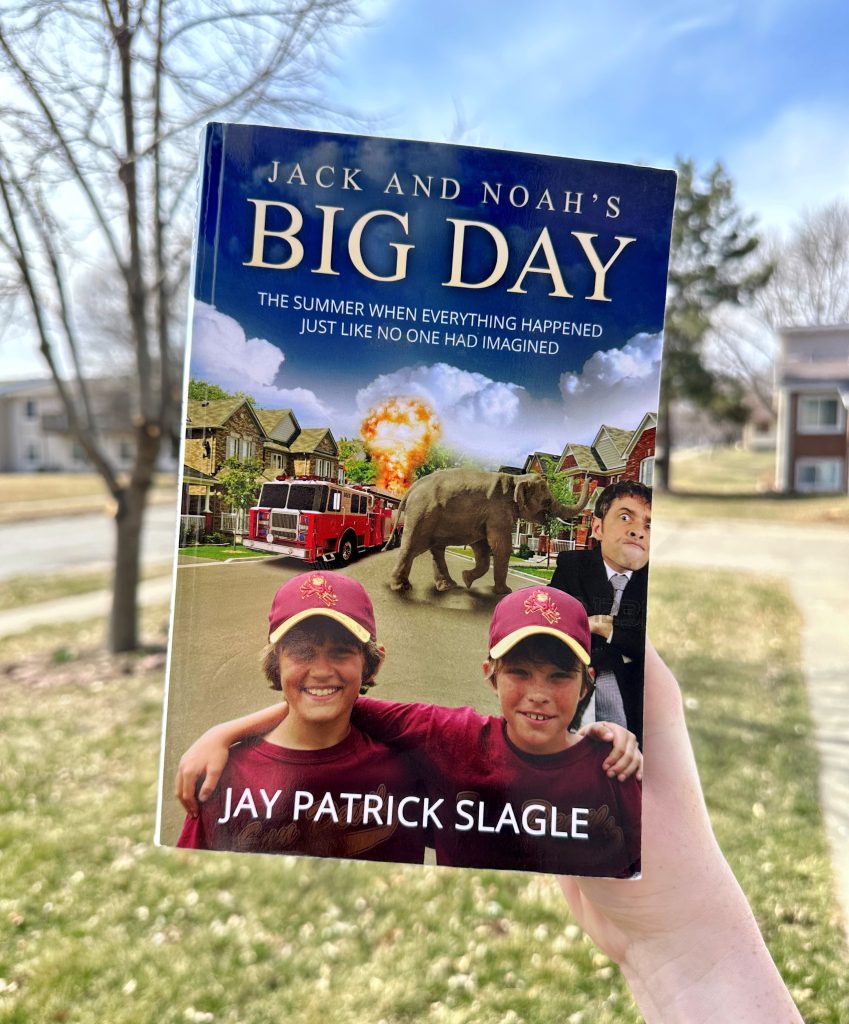
“Jack and Noah’s Big Day: The Summer When Everything Happened Just Like No One Had Imagined” by Jay Patrick Slagle has been recorded by our Talking Book and Braille Service and is perfect for summer!
Best friends Jack and Noah are facing what promises to be a long boring summer. They decide that Jack needs the world’s greatest birthday party, for which they will need to raise a lot of money. As fundraisers, they start a summer camp, staff a slushie stand, and try to sell glow-in-the-dark necklaces at the city’s July 4th fireworks show. Along the way, a house is blown up; there are visits by police, foremen, and news reporters; and an elephant marches down the driveway.
TBBS borrowers can request “Jack and Noah’s Big Day,” DBC01984, or download it from the National Library Service BARD (Braille and Audio Reading Download) website. If you have high-speed internet access, you can download books to your smartphone or tablet, or onto a flash drive for use with your player. You may also contact your reader’s advisor to have the book mailed to you on cartridge.
Posted in Books & Reading, General, Talking Book & Braille Service (TBBS)
|
Tagged BARD, books, Books on BARD, Jack and Noah's Big Day, Jay Patrcik Slagle, Jay Slagle, New, Reading, Summer, Talking Books, TBBS
|
Leave a comment
“Becker’s Farm” Now Available on BARD!
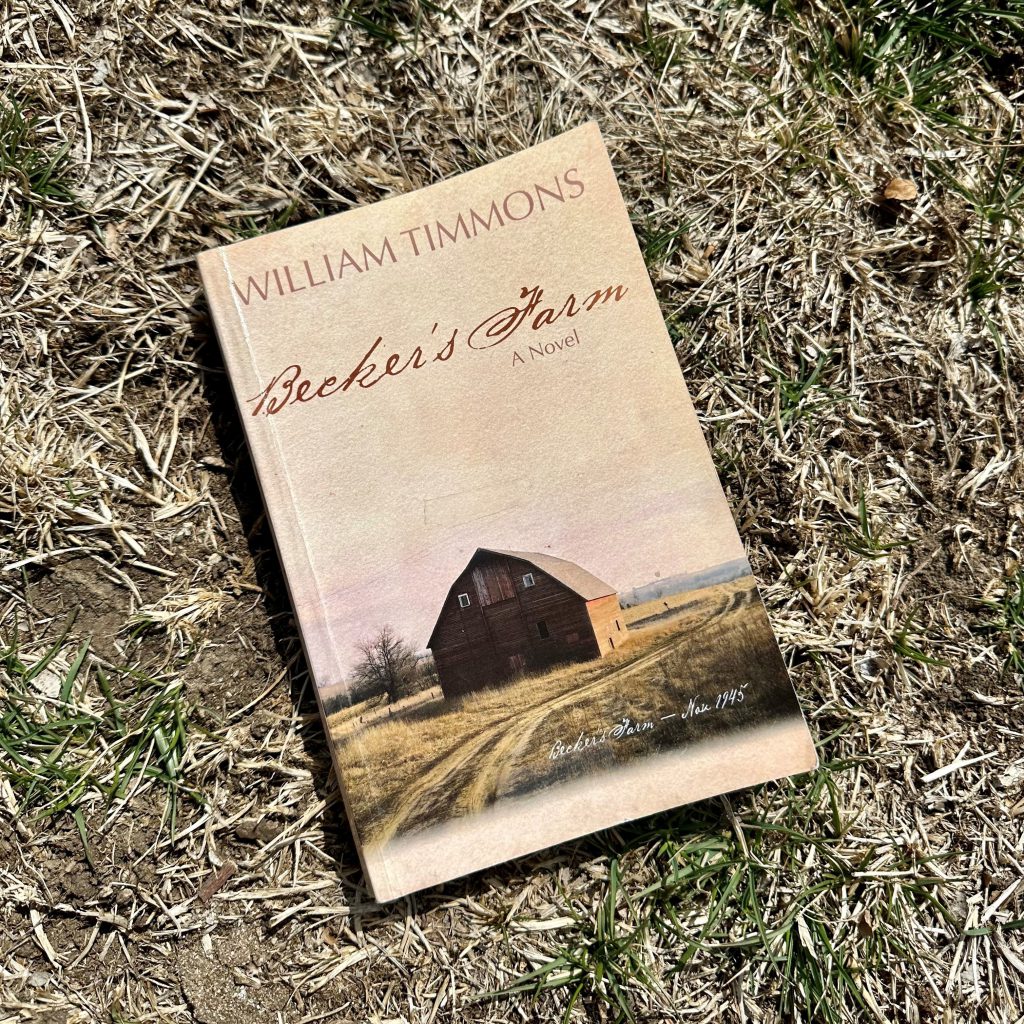
“Becker’s Farm: A Novel” by William Timmons is now available on cartridge and for download on BARD!
World War II prisoner of war Helmut Sommerfield is interned at a small POW camp in western Nebraska. He soon earns the good will of surrounding farmers as he puts his mechanical skills to work repairing farm equipment. Their admiration for him deepens after Helmut is severely burned while rescuing two farmers trapped in a burning barn. One of the farmers, a recluse, dies, giving rise to a plot to swap Helmut’s identity for the deceased farmer. His chance for a new life is threatened by an escaping POW who knows Helmut’s true identity.
TBBS borrowers can request “Becker’s Farm,” DBC01999, or download it from the National Library Service BARD (Braille and Audio Reading Download) website. If you have high-speed internet access, you can download books to your smartphone or tablet, or onto a flash drive for use with your player. You may also contact your reader’s advisor to have the book mailed to you on cartridge.
Posted in Books & Reading, General, Talking Book & Braille Service (TBBS)
|
Tagged BARD, Becker's FArm, Books on BARD, Talking Books, TBBS, William Timmons
|
Leave a comment
New Book available on BARD!
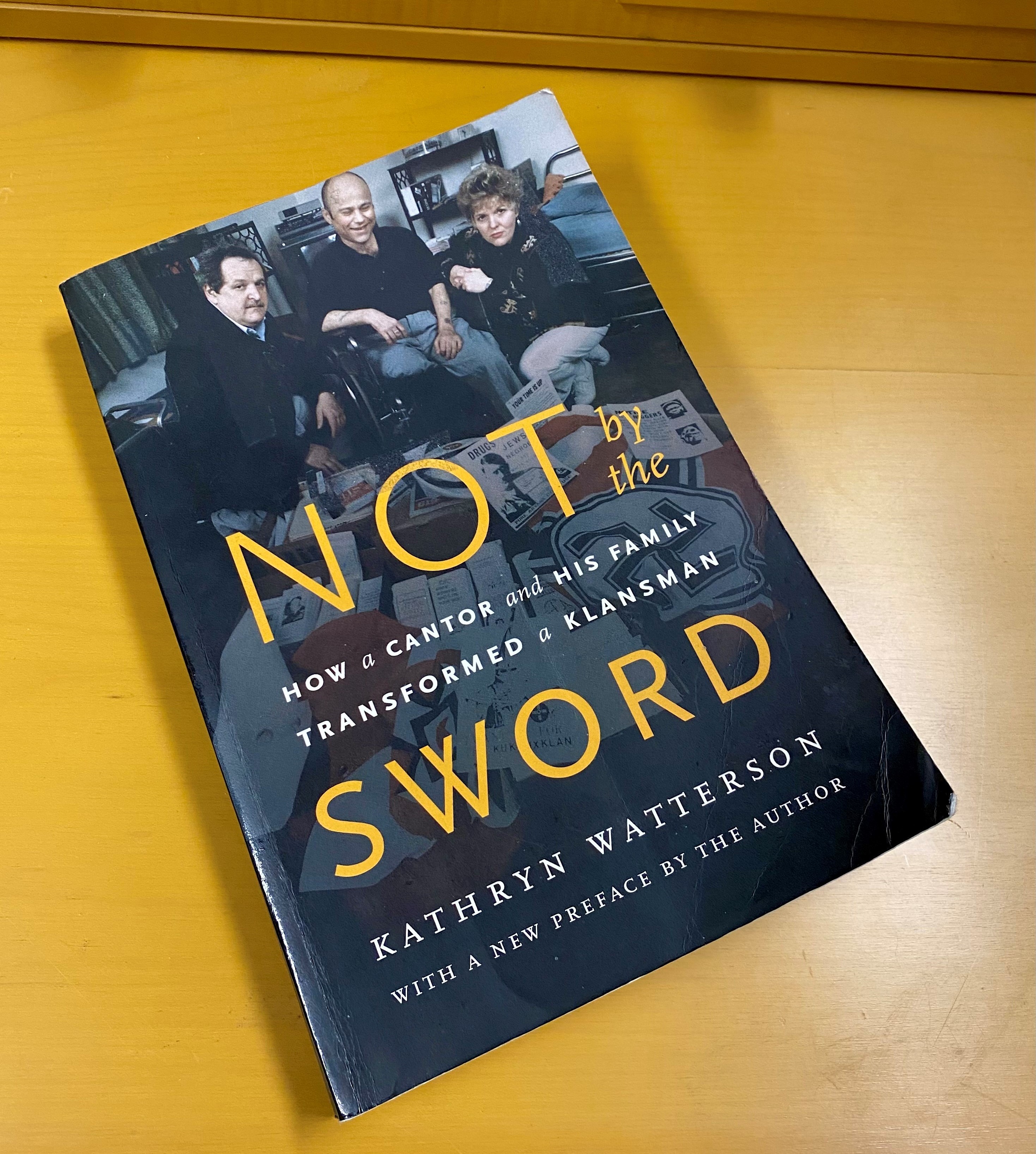
“Not by the Sword: How a Cantor and His Family Transformed a Klansman“ by Kathryn Watterson is now available on cartridge and for download on BARD!
“Watterson has written one of the most powerful, painful, yet healing stories about our most explosive issue: race. Her book [Not by the Sword] is not only literally true but also symbolically true for us as people — if we acknowledge and transform who and what we are.”
Cornel West, author of “Race Matters”
Grand Dragon of the White Knights of the Ku Klux Klan of Nebraska, Larry Trapp was a wheelchair-bound amputee who led a campaign of fear against Jews and other minorities from his cramped apartment in Lincoln. After receiving death threats from Larry, Cantor Michael Weisser and his wife Julie extended friendship to him and later offered to take him into their home. Larry renounced all ties to the Klan, began working with youth groups to educate them about the danger of racist ideology, and, before dying from kidney disease, even converted to Judaism.
TBBS borrowers can request “Not by the Sword,” DBC01995, or download it from the National Library Service BARD (Braille and Audio Reading Download) website. If you have high-speed internet access, you can download books to your smartphone or tablet, or onto a flash drive for use with your player. You may also contact your reader’s advisor to have the book mailed to you on cartridge.
Posted in Books & Reading, General, Talking Book & Braille Service (TBBS)
|
Tagged BARD, Books on BARD, Kathryn Watterson, New, Not by the Sword, Talking Books, TBBS
|
Leave a comment
